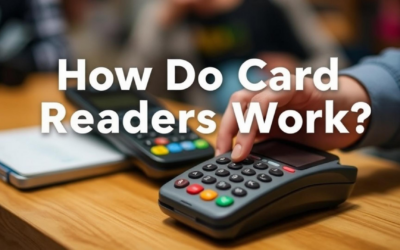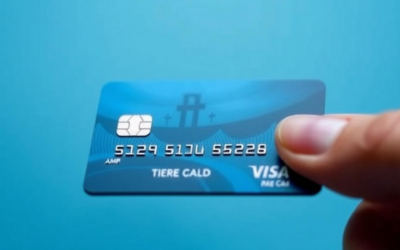Understanding Payment Confirmation: Why It Matters and How It Works
With the rapid rise of digital transactions, ensuring that payments are processed accurately and securely has become a critical part of financial management. Payment confirmation plays an essential role by ensuring money has reached the intended recipient. From businesses managing daily transactions to consumers paying bills online, confirmation of payments ensures trust, transparency, and security in money flow. In this blog post, we will learn what payment confirmation entails, its importance across different sectors, and the challenges and future trends in payment verification systems.
What is Payment Confirmation?
Payment confirmation is the process of verifying that the intended party has successfully received a payment. It is a critical step in ensuring that money transfers are completed accurately and securely, providing both parties with proof that the transaction has been processed. This process may involve notifications sent via email, SMS, or an in-app alert, serving as a formal acknowledgement that the payment is complete.
Types of Payment Confirmation
There are several forms of payment confirmation, each tailored to meet different transaction needs:
Instant Confirmation
In industries such as retail and e-commerce, payment confirmation is typically provided in real-time. As soon as a customer completes a purchase, they receive an instant notification, often via email or SMS, confirming the transaction. This immediate confirmation helps both the business and the customer ensure that the payment has been successfully processed.
Delayed Confirmation
In cases involving traditional banking systems or international payments, confirmation may take several hours or even days due to longer processing times. For example, cross-border transactions often require additional verification checks, resulting in delayed confirmation. While this process may take longer, it remains critical for ensuring that payments are securely completed across multiple jurisdictions.
Why is Payment Confirmation Important?
Payment confirmation is an essential component of modern financial transactions, ensuring that both security and accuracy are maintained. By providing a confirmation for each transaction, businesses and individuals can avoid misunderstandings, errors, and fraudulent activities.
Ensuring Accuracy and Reducing Errors
One of the key benefits of payment confirmation is that it helps prevent errors. In the case of large or complex transactions, even a small mistake in account numbers or payment details could lead to funds being sent to the wrong recipient. Payment confirmation acts as a safeguard, verifying the recipient’s details before finalising the transaction. This reduces the chances of misdirected payments and ensures the correct party receives the funds.
Fraud Prevention and Security
Fraud is a significant concern in the world of digital payments, and the need for robust security measures has never been greater. Payment confirmation plays an important role in reducing fraud by verifying transaction details and ensuring that funds are sent to the correct accounts. This process helps identify and prevent unauthorised payments, protecting both businesses and consumers from financial loss. Confirmation systems have evolved to incorporate multiple layers of security, helping to reduce incidents of fraud, such as phishing or social engineering attacks.
Building Trust and Transparency
In addition to providing security, payment confirmation also fosters trust between businesses and their customers. When a customer makes a payment and immediately receives confirmation, it builds confidence that the transaction was successfully processed. This transparency helps reduce disputes, ensures a smooth customer experience, and promotes trust in the company’s financial processes.
How Payment Confirmation Works in Different Industries
Payment confirmation is not a one-size-fits-all process, and different industries tailor their payment systems based on their specific needs and transaction volumes. Understanding how payment confirmation works across various sectors provides a clearer view of its overall importance.
Financial Institutions
In the banking sector, payment confirmation systems are essential for verifying transactions, particularly in international or high-value payments. Financial institutions often use automated systems that provide real-time confirmation once a payment is processed, ensuring that all parties involved receive notifications promptly. This level of confirmation is especially important in reducing risks related to unauthorised transactions and helping businesses track large amounts of payments accurately.
E-commerce and Retail
In the e-commerce world, payment confirmation is crucial for ensuring seamless transactions. Upon completing a purchase, customers expect to receive instant confirmation via email or SMS, verifying that their payment has been successfully processed and that their order is being fulfilled. This immediate feedback is integral to maintaining customer satisfaction and streamlining the buying experience. It also helps businesses maintain accurate records of transactions and address any issues that may arise during the payment process.
Service-based Industries
For industries such as utilities, healthcare, and telecommunications, payment confirmation is essential for managing ongoing payments like bills and subscriptions. These sectors often rely on secure systems to confirm recurring payments, ensuring that customers are kept informed of their payment status. Invoices and receipts sent as confirmation help customers track their expenses and maintain financial transparency.
Ensuring Accurate Payment Confirmation
To ensure accuracy in payment confirmation, businesses and individuals must adopt practices that reduce errors and safeguard against fraud. Here are some key methods for ensuring reliable payment confirmation.
Verifying Payment Details Before Transactions
One of the simplest ways to ensure accurate payment confirmation is to verify all payment details before completing the transaction. Double-checking account numbers, sort codes, and payee names can significantly reduce the risk of sending payments to the wrong recipient. For businesses that manage large volumes of payments, automating this process through a payment system can further enhance accuracy.
Automating Payment Confirmation Systems
Automation is a key tool for businesses looking to streamline their payment processes. By integrating automated payment confirmation systems into their platforms, businesses can ensure that all payments are tracked in real-time and accurately recorded. Automation helps reduce manual errors, improves efficiency, and allows businesses to manage large-scale transactions without the risk of discrepancies.
Common Challenges in Payment Confirmation
Despite its benefits, payment confirmation is not without its challenges. These issues can arise due to the complexities of modern financial systems and the varying regulations governing international transactions.
Cross-border Payments
International payments often face delays in confirmation due to differences in banking regulations, currency conversions, and time zones. For businesses that regularly handle cross-border payments, these delays can be frustrating and cause uncertainty about whether payments have been successfully processed. To address this, businesses should use secure systems that offer real-time tracking and confirmation, even for international transactions.
Technical Errors and Delays
While payment confirmation systems are generally reliable, technical issues can sometimes cause delays in processing. Network outages, system errors, or incompatibility between different payment platforms can lead to confirmation failures. These issues can be mitigated by using reliable and secure payment gateways that offer robust support and redundancy to prevent delays in confirming transactions.
The Future of Payment Confirmation
As technology continues to evolve, the future of payment confirmation looks promising. Innovations in digital payment systems and increased use of blockchain technology are paving the way for faster, more secure payment confirmation processes.
Real-time Payment Systems
One trend that is gaining momentum is the rise of real-time payment systems, which offer instant confirmation for both domestic and international transactions. These systems eliminate the delays typically associated with cross-border payments, providing immediate feedback on whether a payment has been received. This is particularly useful for businesses that operate globally and need to ensure that payments are processed quickly and securely.
Integration of Advanced Security Measures
As fraud continues to evolve, payment confirmation systems are becoming more sophisticated, integrating advanced security measures such as biometrics, encryption, and artificial intelligence. These technologies enhance the overall security of payment confirmation, helping businesses stay ahead of potential threats and ensure the accuracy of their transactions.
FAQs
- How do I confirm a payment received?
You can confirm a payment received through various methods depending on the payment system or financial institution. Typically, this involves:
- Checking your bank account for a credit entry reflecting the payment.
- Receiving a notification from your payment provider (email, SMS, or in-app alert).
- For business payments, you may receive a remittance advice from the payer, confirming the amount and date of the transfer.
- What is a payment confirmation called?
A payment confirmation can be referred to as a receipt or remittance advice. In many payment systems, it’s an electronic or printed acknowledgment that confirms the successful transfer of funds to the intended recipient.
- Is payment confirmation an invoice?
No, a payment confirmation is not the same as an invoice. An invoice is a request for payment issued by a seller to a buyer, detailing the amount due, while a payment confirmation is a record that verifies the payment has been made and received.
- What is proof of payment or payment confirmation?
Proof of payment or payment confirmation is documentation that shows a payment was successfully made and received. This could be a bank statement entry, a receipt issued by the seller, or a notification from your payment service provider. It serves as evidence that the transaction has been completed.
- What is a payment confirmation page?
A payment confirmation page is typically the final step in an online transaction. After submitting your payment details, this page confirms that your payment was successfully processed. It usually includes details such as the transaction reference number, payment amount, and confirmation of the recipient.







